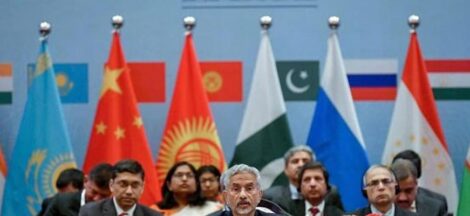Bharatiya Janata Party’s Punjab unit chief Sunil Jakhar has alleged that internal sabotage by Congress leaders led to the party’s setback in the Ludhiana West byelection, accusing them of striking a covert understanding with the chief minister. The byelection result saw Congress candidate Bharat Bhushan Ashu lose ground in a constituency once considered a party stronghold.
Jakhar’s remarks came a day after the vote count concluded, with the BJP candidate putting up a modest performance, while Ashu was defeated by a significant margin. The BJP state president took aim at Congress leaders who, he claimed, had “surrendered” to the chief minister out of fear that their misdeeds would be exposed. According to him, this alleged collusion dealt a critical blow to Congress’s electoral chances in Ludhiana West.
While BJP had not been the principal contender in this urban constituency in previous years, the party saw the Congress loss as symptomatic of deeper dysfunction within its former rival. Jakhar charged that “Congress leaders, to save themselves, betrayed their own party and its candidate,” suggesting that this internal disunity outweighed any campaign mounted by external opponents.
Bharat Bhushan Ashu, a former state minister, had entered the fray with a well-established organisational base and name recognition. Yet the outcome marked a striking reversal for him and his party, which had previously held sway over Ludhiana’s urban electorate. Analysts observing the campaign noted visible cracks in the Congress’s mobilisation strategy, with some functionaries choosing to remain on the sidelines during key phases of outreach and canvassing.
The chief minister, who is from the Aam Aadmi Party, was not directly mentioned by name in Jakhar’s statement, but the reference was unmistakable. Political observers read the BJP leader’s comments as part of a broader attempt to capitalise on the strained relationship between Punjab Congress leaders and the state leadership, which has been under AAP’s command since the 2022 assembly elections.
Congress leaders, stung by the defeat, responded to Jakhar’s allegations with deflections and counterclaims. Some figures within the party blamed BJP’s “divisive tactics” and what they called “electoral manipulation”, while others hinted at vote-splitting by independent candidates, which allegedly impacted Ashu’s prospects. However, there was little public acknowledgment of internal sabotage or dissension, even as murmurs grew within party ranks about the lack of central coordination during the campaign.
The Ludhiana West result also prompted introspection within the BJP itself, given that its candidate failed to attract a significant vote share. Jakhar, however, used the outcome to position the BJP as a beneficiary of anti-Congress sentiment. “Instead of uniting behind their candidate, they turned against him to cut a deal. This is the face of the Congress today,” he said during a media interaction in Chandigarh.
Ludhiana West has long been a microcosm of Punjab’s evolving political dynamics, with each byelection reflecting shifts in urban sentiment, party organisation, and leadership coherence. The defeat of a veteran figure like Ashu could exacerbate tensions within the Congress, particularly in the urban belt, where both AAP and BJP have been trying to expand their footprint.
Observers also point out that Congress’s electoral machinery has suffered from factional disputes since its 2022 assembly loss. Despite being the largest opposition party in the state assembly, it has struggled to offer a united front. Internal fissures have become more pronounced with the growing influence of younger leaders and the waning control of senior functionaries over district-level affairs.
Ashu, a close ally of several senior leaders, had earlier courted controversy during his ministerial tenure. His political fortunes appeared to have taken a downturn after the change in regime, though he remained an active presence in Punjab’s political discourse. His defeat, amid allegations of betrayal from within, may now lead to a renewed churn in party leadership discussions.




 India Upholds IWT Suspension and Eyes Revival of Tulbul Barrage
India Upholds IWT Suspension and Eyes Revival of Tulbul Barrage 